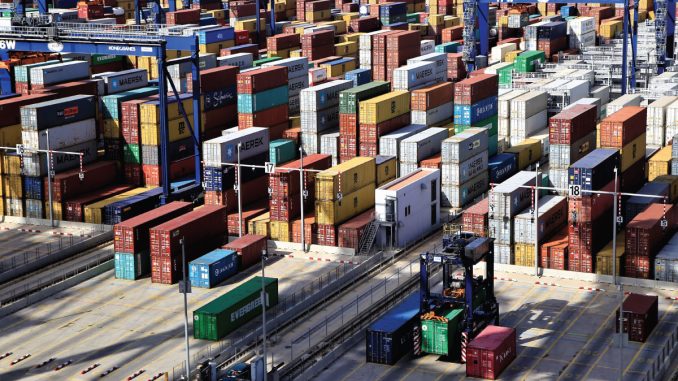
Global trade tensions have become a prominent issue in today’s interconnected world. As countries engage in disputes over tariffs, sanctions, and trade policies, the consequences ripple through various industries and sectors. One area significantly affected by these global trade tensions is import-export businesses.
In this blog post, we will explore the impact of global trade tensions on import-export businesses and discuss strategies to navigate these challenging times. We will also examine changes in international trade patterns during periods of tension and delve into case studies that highlight real-world examples of how such conflicts can shape the global economy.
Whether you are an established import-export business or contemplating entering the industry, understanding the implications of global trade tensions is crucial for success in today’s dynamic marketplace. So let us dive deeper into this complex subject matter and uncover valuable insights that can help your business thrive amidst turbulent times.
Overview of Global Trade Tensions
Global trade tensions refer to conflicts and disputes between nations regarding their international trade policies, practices, and regulations. These tensions can arise due to a variety of factors such as disagreements over tariffs, subsidies, intellectual property rights, and market access.
One of the key drivers of global trade tensions is the pursuit of economic self-interest by countries. Nations often impose protective measures to safeguard domestic industries from foreign competition or to gain leverage in negotiations with trading partners. This can lead to retaliatory actions from other countries, resulting in a cycle of escalating tensions.
Trade tensions have been further exacerbated by geopolitical factors such as political rivalries and ideological differences among nations. For example, recent years have witnessed a significant rise in protectionist rhetoric driven by nationalist sentiments in various parts of the world.
The advent of new technologies and changing global dynamics has also contributed to trade tensions. Industries undergoing rapid technological advancements often face challenges related to intellectual property rights infringement and unfair competition practices, leading to disputes between countries.
Furthermore, regional alliances and free trade agreements can both ease or exacerbate global trade tensions depending on their terms and conditions. While these agreements aim to promote economic integration among member states through reduced barriers and increased market access opportunities, they can create tension when one country feels disadvantaged or accuses another country of non-compliance with agreed-upon rules.
It’s important to note that global trade tensions are not isolated events but rather interconnected issues that impact multiple sectors across economies worldwide. The repercussions are felt not only by import-export businesses but also by consumers who may experience higher prices for goods affected by tariffs or disruptions in supply chains due to retaliatory measures.
In the next sections we will explore the specific impacts of global trade tensions on import-export businesses as well as strategies they can employ during these challenging times.
Impacts of Global Trade Tensions on Import-Export Businesses
Global trade tensions have significant impacts on import-export businesses, causing disruptions and uncertainties in the global market. One of the key effects is increased tariffs imposed on imported goods, leading to higher costs for importers. This can result in reduced profit margins or even loss for businesses that heavily rely on imports.
Moreover, trade tensions often lead to decreased consumer demand due to economic uncertainty. As a result, import-export businesses may experience a decline in sales and revenue. The reduction in demand not only affects their bottom line but also hampers their growth prospects in new markets.
In addition, global trade tensions can disrupt supply chains and distribution networks. Import-export businesses heavily rely on efficient transportation systems and smooth customs procedures. However, during periods of tension between nations, there are often delays at ports and increased border regulations which impede the flow of goods across borders.
Furthermore, export-oriented industries may face retaliatory measures from countries affected by these tensions. For example, if one country imposes tariffs on another’s products as part of a trade dispute, the impacted country is likely to respond with similar measures targeting its counterpart’s exports.
Import-export businesses must also navigate through changing regulatory frameworks during times of global trade tensions. Governments might introduce new policies or revise existing ones affecting international transactions such as customs procedures or licensing requirements. Complying with these new regulations adds complexity and costs to business operations.
It is evident that global trade tensions have far-reaching implications for import-export businesses worldwide. From increased tariffs to disrupted supply chains and changing regulatory environments – these challenges require careful planning and adaptability from companies operating in this sector.